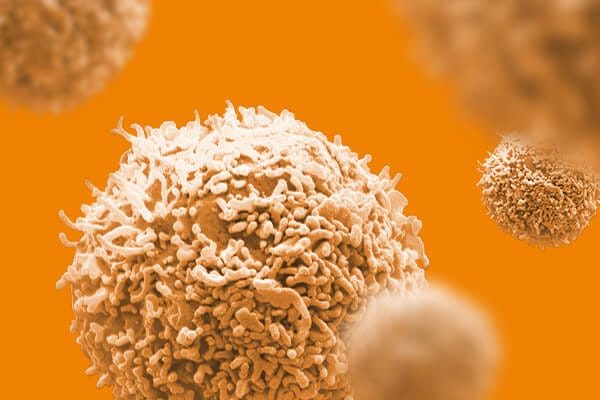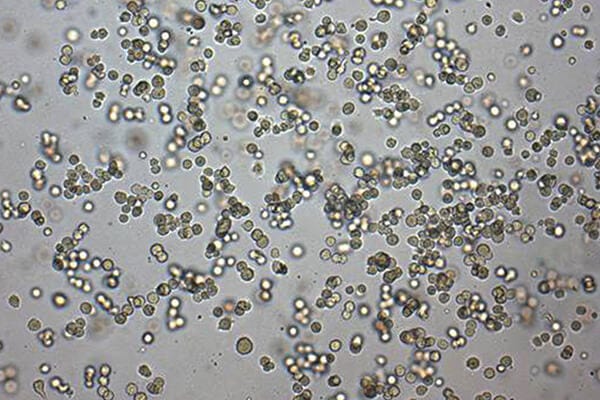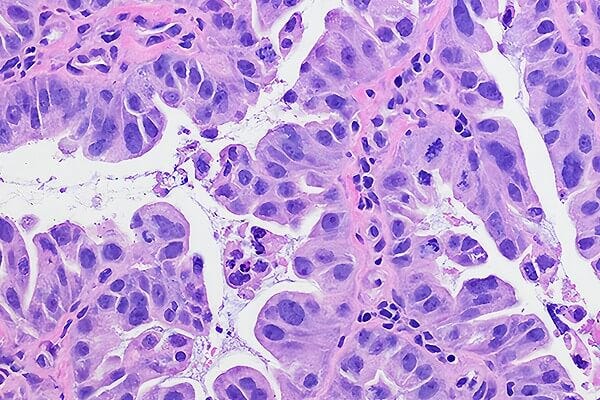Scientific Resources
-
 文献van Wilgenburg B et al. (AUG 2013) PLoS ONE 8 8 e71098
文献van Wilgenburg B et al. (AUG 2013) PLoS ONE 8 8 e71098Efficient, Long Term Production of Monocyte-Derived Macrophages from Human Pluripotent Stem Cells under Partly-Defined and Fully-Defined Conditions
Human macrophages are specialised hosts for HIV-1,dengue virus,Leishmania and Mycobacterium tuberculosis. Yet macrophage research is hampered by lack of appropriate cell models for modelling infection by these human pathogens,because available myeloid cell lines are,by definition,not terminally differentiated like tissue macrophages. We describe here a method for deriving monocytes and macrophages from human Pluripotent Stem Cells which improves on previously published protocols in that it uses entirely defined,feeder- and serum-free culture conditions and produces very consistent,pure,high yields across both human Embryonic Stem Cell (hESC) and multiple human induced Pluripotent Stem Cell (hiPSC) lines over time periods of up to one year. Cumulatively,up to ∼3×10(7) monocytes can be harvested per 6-well plate. The monocytes produced are most closely similar to the major blood monocyte (CD14(+),CD16(low),CD163(+)). Differentiation with M-CSF produces macrophages that are highly phagocytic,HIV-1-infectable,and upon activation produce a pro-inflammatory cytokine profile similar to blood monocyte-derived macrophages. Macrophages are notoriously hard to genetically manipulate,as they recognise foreign nucleic acids; the lentivector system described here overcomes this,as pluripotent stem cells can be relatively simply genetically manipulated for efficient transgene expression in the differentiated cells,surmounting issues of transgene silencing. Overall,the method we describe here is an efficient,effective,scalable system for the reproducible production and genetic modification of human macrophages,facilitating the interrogation of human macrophage biology. View Publication -
 文献Shahbazi M et al. (JUL 2013) Journal of the Neurological Sciences 330 1–2 85--93
文献Shahbazi M et al. (JUL 2013) Journal of the Neurological Sciences 330 1–2 85--93Inhibitory effects of neural stem cells derived from human embryonic stem cells on differentiation and function of monocyte-derived dendritic cells
Neural stem cells (NSCs) possess immunosuppressive characteristics,but effects of NSCs on human dendritic cells (DCs),the most important antigen presenting cells,are less well studied. We used an in vitro approach to evaluate the effects of human NSCs on differentiation of human blood CD14+ monocytes into DCs. NSCs derived from H1 human embryonic stem cells (hESC-NSCs) and human ReNcell NSC line,as well as human bone marrow derived mesenchymal stem cells (MSCs),were tested. We observed that in response to treatment with interleukin-4 and granulocyte macrophage colony-stimulating factor CD14+ monocytes co-cultured with NSCs were able to down-regulate CD14 and up-regulate the differentiation marker CD1a,whereas MSC co-culture strongly inhibited CD1a expression and supported prolonged expression of CD14. A similar difference between NSCs and MSCs was noted when lipopolysaccharides were included to induce maturation of monocyte-derived DCs. However,when effects on the function of derived DCs were investigated,NSCs suppressed the elevation of the DC maturation marker CD83,although not the up-regulation of costimulatory molecules CD80,CD86 and CD40,and impaired the functional capacity of the derived DCs to stimulate alloreactive T cells. We did not observe any obvious difference between hESC-NSCs and ReNcell NSCs in inhibiting DC maturation and function. Our data suggest that although human NSCs are less effective than human MSCs in suppressing monocyte differentiation into DCs,these stem cells can still affect the function of DCs,ultimately regulating specific immune responses. View Publication -
 文献Zeng J et al. (MAY 2012) The Journal of Immunology 188 9 4297--4304
文献Zeng J et al. (MAY 2012) The Journal of Immunology 188 9 4297--4304Enhancing Immunostimulatory Function of Human Embryonic Stem Cell-Derived Dendritic Cells by CD1d Overexpression
Human embryonic stem cell-derived dendritic cells (hESC-DCs) may potentially provide a platform to generate off-the-shelf" therapeutic cancer vaccines. To apply hESC-DCs for cancer immunotherapy in a semiallogeneic setting� View Publication -
 文献Li Q et al. (AUG 2005) Proceedings of the National Academy of Sciences of the United States of America 102 35 12425--30
文献Li Q et al. (AUG 2005) Proceedings of the National Academy of Sciences of the United States of America 102 35 12425--30Enhanced NF-kappaB activation and cellular function in macrophages lacking IkappaB kinase 1 (IKK1).
IkappaB kinase (IKK) complex plays a key regulatory role in macrophages for NF-kappaB activation during both innate and adaptive immune responses. Because IKK1-/- mice died at birth,we differentiated functional macrophages from embryonic day 15.5 IKK1 mutant embryonic liver. The embryonic liver-derived macrophage (ELDM) showed enhanced phagocytotic clearance of bacteria,more efficient antigen-presenting capacity,elevated secretion of several key proinflammatory cytokines and chemokines,and known NFkappaB target genes. Increased NFkappaB activity in IKK1 mutant ELDM was the result of prolonged degradation of IkappaBalpha in response to infectious pathogens. The delayed restoration of IkappaBalpha in pathogen-activated IKK1-/- ELDM was a direct consequence of uncontrolled IKK2 kinase activity. We hypothesize that IKK1 plays a checkpoint role in the proper control of IkappaBalpha kinase activity in innate and adaptive immunity. View Publication
过滤器
筛选结果
类别
- Product Information
- Educational Materials
- Areas of Interest
Show More
Show Less
产品类型
- Cell Culture Media and Supplements 3 项目
- Cell Engineering and Molecular Tools 1 项目
Show More
Show Less
产品系列
资源类别
- Brochure 3 项目
- 文献 12 项目
- 线上研讨会 1 项目
Show More
Show Less
细胞类型
- B 细胞 182 项目
- Cardiomyocytes 21 项目
- CD4+ 121 项目
- CD8+ 92 项目
- CHO细胞 3 项目
- Endoderm 18 项目
- Endothelial Cells 12 项目
- Epithelial Cells 29 项目
- HEK-293细胞(人胚肾293细胞) 1 项目
- Hematopoietic Cells 22 项目
- Hepatic Cells 13 项目
- HUVEC细胞(人脐静脉内皮细胞) 1 项目
- Mesenchymal Cells 18 项目
- Mesoderm 18 项目
- Neural Cells 89 项目
- NK 细胞 121 项目
- Other Subsets 21 项目
- PSC-Derived 128 项目
- PSC衍生 27 项目
- Regulatory 34 项目
- T Cells 102 项目
- T 细胞 352 项目
- 上皮细胞 106 项目
- 中胚层 1 项目
- 乳腺细胞 74 项目
- 先天性淋巴细胞 23 项目
- 全血 6 项目
- 内皮细胞 8 项目
- 内皮集落形成细胞(ECFCs) 3 项目
- 前列腺细胞 8 项目
- 单核细胞 142 项目
- 多巴胺能神经元 3 项目
- 多能干细胞 1859 项目
- 小胶质细胞 3 项目
- 巨噬细胞 25 项目
- 巨核细胞 8 项目
- 心肌细胞 15 项目
- 成骨细胞 6 项目
- 星形胶质细胞 2 项目
- 杂交瘤细胞 83 项目
- 树突状细胞(DCs) 91 项目
- 气道细胞 73 项目
- 淋巴细胞 33 项目
- 癌细胞及细胞系 130 项目
- 白细胞单采样本 12 项目
- 白血病/淋巴瘤细胞 14 项目
- 真皮细胞 2 项目
- 神经元 165 项目
- 神经干/祖细胞 420 项目
- 神经细胞 6 项目
- 粒细胞及其亚群 76 项目
- 红系细胞 9 项目
- 肌源干/祖细胞 9 项目
- 肝细胞 25 项目
- 肠道细胞 61 项目
- 肾细胞 3 项目
- 肾脏细胞 4 项目
- 肿瘤细胞 11 项目
- 胰腺细胞 12 项目
- 脂肪细胞 6 项目
- 脑肿瘤干细胞 87 项目
- 血小板 4 项目
- 血浆 16 项目
- 血管生成细胞 2 项目
- 调节性细胞 9 项目
- 软骨细胞 7 项目
- 造血干/祖细胞 874 项目
- 间充质基质细胞 13 项目
- 间充质干/祖细胞 156 项目
- 间充质细胞 1 项目
- 骨髓基质细胞 2 项目
- 骨髓瘤细胞 4 项目
- 髓系细胞 116 项目
- 鼠胚胎成纤维细胞 1 项目
- 白细胞 9 项目
- 其它细胞系 5 项目
- 红细胞 10 项目
Show More
Show Less
研究领域


 EasySep™小鼠TIL(CD45)正选试剂盒
EasySep™小鼠TIL(CD45)正选试剂盒





 沪公网安备31010102008431号
沪公网安备31010102008431号